What Are The Key Components Of DevOps?
4.8 out of 5 based on 9748 votesLast updated on 25th Apr 2024 16.87K Views
- Bookmark

DevOps has various key components that work together to streamline processes, improve collaboration, and enhance the quality and reliability of software products.
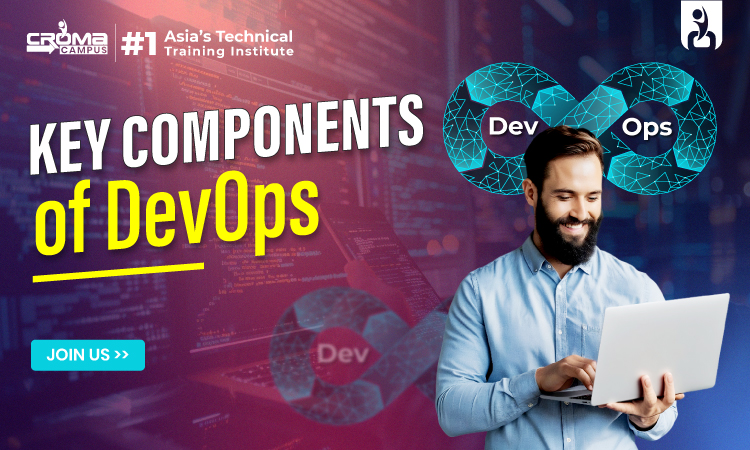
Introduction
DevOps, a transformative approach to software development and delivery, has reshaped how organizations create, deploy, and manage software applications. By breaking down traditional silos between development and operations teams, DevOps emphasizes collaboration, automation, and continuous improvement.
This section explores the key components of DevOps, such as CI/CD, continuous testing, automated delivery pipelines, configuration management, Infrastructure as Code (IaC), and automated monitoring. These DevOps components collectively drive innovation and efficiency in modern software development practices.
What Is DevOps?
DevOps, an amalgamation of "development" and "operations," is a software development methodology. It emphasizes collaboration, communication, and integration between software developers and IT operations professionals. Moreover, DevOps aims to streamline the software delivery process, enabling organizations to deliver high-quality software products more quickly, efficiently, and reliably. Owing to a rising demand for DevOps professionals, the DevOps Online Course has been designed to provide the best training in this field.
At its core, DevOps seeks to break down traditional silos between development, operations, and other relevant departments. This fosters a culture of shared responsibility and continuous improvement. This is achieved through various practices, including continuous integration, continuous delivery, and automated testing. These together automate and streamline the software development lifecycle.
Furthermore, DevOps also promotes the use of infrastructure as code (IaC) and cloud computing technologies to facilitate the rapid provisioning and scaling of infrastructure resources. By treating infrastructure configurations as code, DevOps teams can manage infrastructure more effectively. This enables greater agility and flexibility in deploying and managing software applications.
Additionally, the DevOps components encourage a shift-left approach to security, where security considerations are integrated into the software development process from the outset rather than treated as an afterthought.
Overall, DevOps is not just about tools and technologies but also about fostering a cultural shift within organizations, promoting collaboration, and transparency. Additionally, it helps organizations focus on delivering value to customers more rapidly and consistently.
DevOps Benefits
DevOps offers numerous benefits to organizations across various industries, enabling them to enhance their software development and delivery processes while improving overall business outcomes
Accelerated software delivery: DevOps enables faster deployment of software updates, reducing time-to-market and allowing organizations to respond swiftly to customer feedback and market demands.
Improved collaboration: By breaking down silos between development and operations teams, DevOps fosters better communication, collaboration, and shared ownership of goals. This leads to more efficient workflows.
Enhanced quality: Continuous integration and automated testing practices in DevOps result in higher-quality software with fewer defects. This helps reduce the likelihood of costly errors and improves overall customer satisfaction.
Increased scalability: Infrastructure as code and cloud technologies enable organizations to scale resources dynamically, meeting changing demand more effectively and efficiently.
Enhanced security: Integrating security practices throughout the development lifecycle improves the overall security posture of software systems, reducing vulnerabilities and mitigating risks.
You May Also Read These Posts:
SAFe DevOps Certification Cost
AWS DevOps Course Syllabus For Beginners
DevOps Components
DevOps is a holistic approach to software development and delivery. This technology has various key components that work together to streamline processes, improve collaboration, and enhance the quality and reliability of software products.
Here are the essential DevOps components:
1. Continuous Integration (CI)
CI is the practice of frequently integrating code changes into a shared repository, where automated build and test processes verify the changes. This ensures that code changes are regularly validated and integrated, thereby, reducing integration issues and enabling teams to detect and address problems early in the development cycle.
2. Continuous Delivery (CD)
CD extends CI by automating the process of deploying code changes to production or other environments. With this key component of DevOps, organizations can deliver software updates more frequently, reliably, and with minimal manual intervention. This leads to faster time to market and reduced risk.
3. Continuous Testing
Continuous testing involves automating the testing process throughout the software development lifecycle, from unit tests to system integration and acceptance tests. By continuously validating software quality and functionality, organizations can identify defects early, accelerate feedback loops, and ensure that software meets quality standards.
4. Automated Delivery Pipeline
An automated delivery pipeline is a set of automated workflows and tools that orchestrate the build, test, and deployment processes. It includes various stages such as code compilation, unit testing, integration testing, deployment to staging environments, and production deployment. Automated pipelines ensure consistency, repeatability, and efficiency in software delivery.
5. Configuration Management
Configuration management involves managing and tracking changes to infrastructure, environments, and application configurations in a systematic and controlled manner. Tools like Puppet, Chef, or Ansible automate configuration management tasks. Furthermore, hese tools ensure that infrastructure configurations are consistent and reproducible across environments.
6. Infrastructure as Code (IaC)
IaC is the practice of managing and provisioning infrastructure resources using code and automation tools. By defining infrastructure configurations as code, organizations can automate the provisioning, scaling, and management of infrastructure resources. This leads to greater agility, scalability, and consistency.
7. Automated Monitoring and Health Checks
Automated monitoring tools continuously monitor the performance, availability, and health of software systems and infrastructure. They alert teams to potential issues and anomalies, thereby, enabling proactive problem resolution. Additionally, it helps ensure that the systems operate optimally.
These components form the foundation of DevOps practices, enabling organizations to achieve faster delivery, higher quality, improved collaboration, and greater agility in software development and delivery. One can join the DevOps Certification course for the best skill development.
Conclusion
In summary, DevOps revolutionizes software development by integrating key components such as CI/CD, continuous testing, automated delivery pipelines, configuration management, IaC, and automated monitoring. Embracing DevOps principles enables organizations to deliver high-quality software faster, more reliably, and with greater efficiency, driving business success in today's fast-paced digital landscape.
Subscribe For Free Demo
Free Demo for Corporate & Online Trainings.
Your email address will not be published. Required fields are marked *

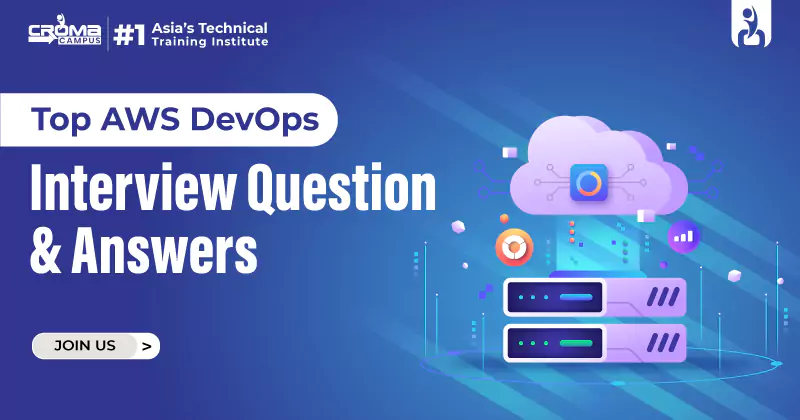



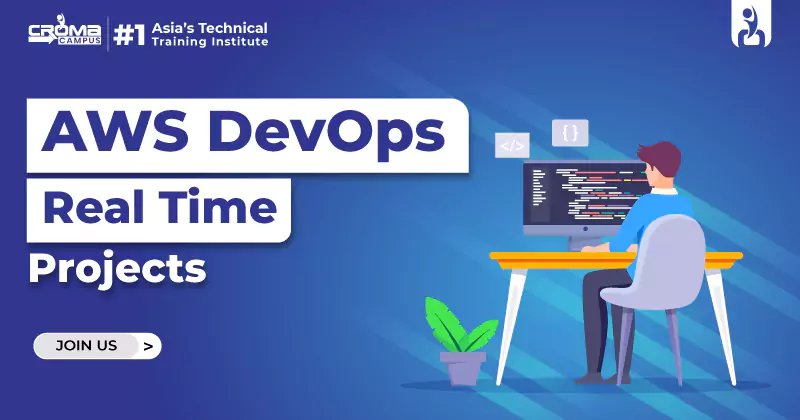

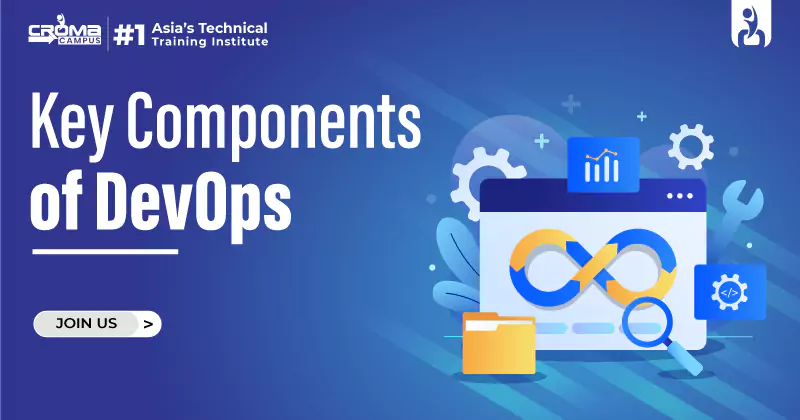
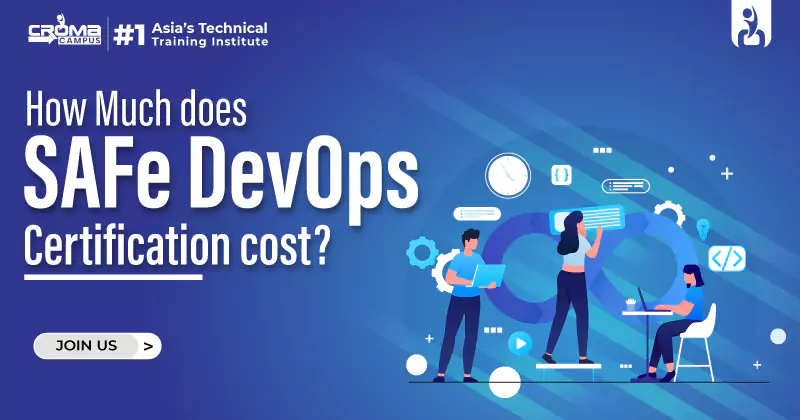
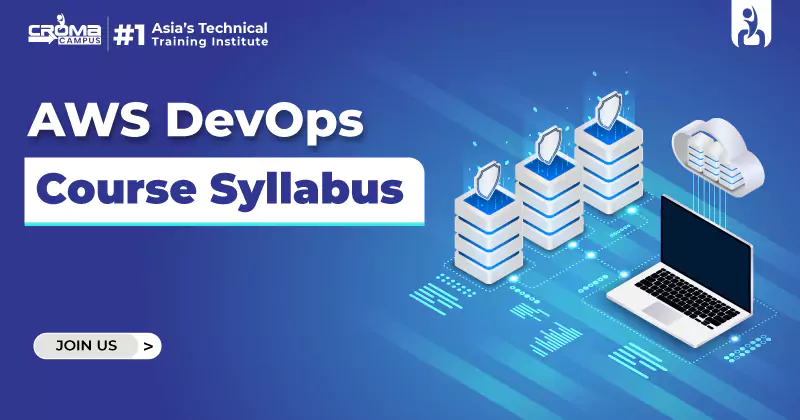











 Master in Cloud Computing Training
Master in Cloud Computing Training